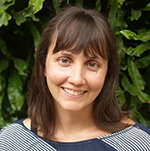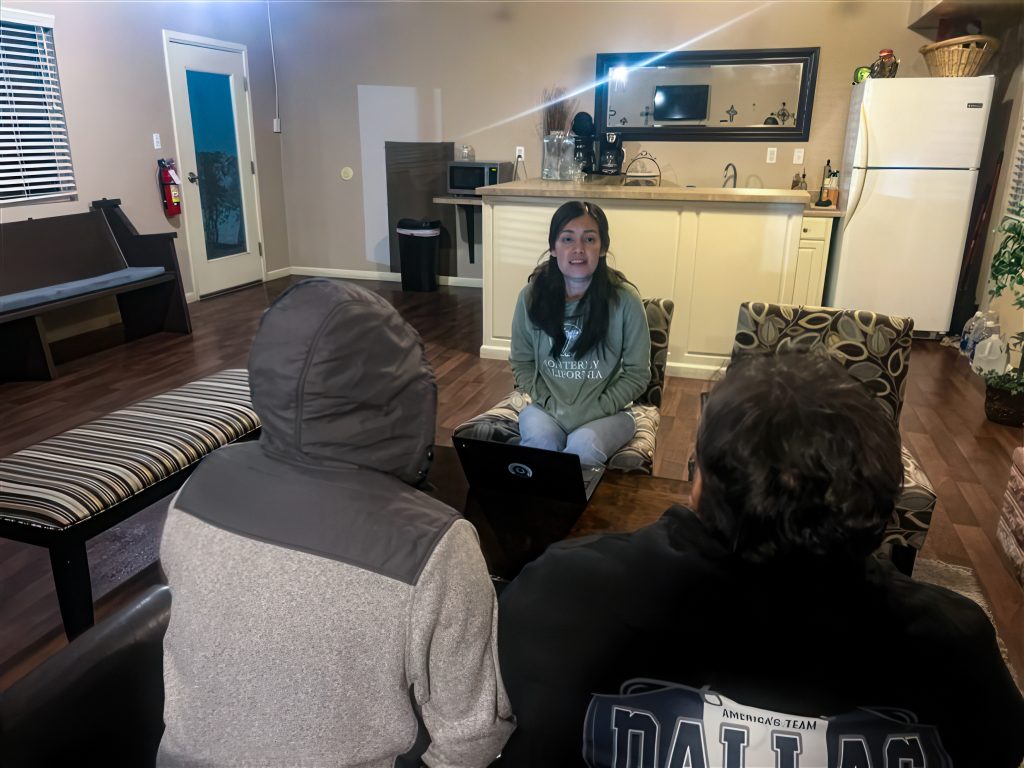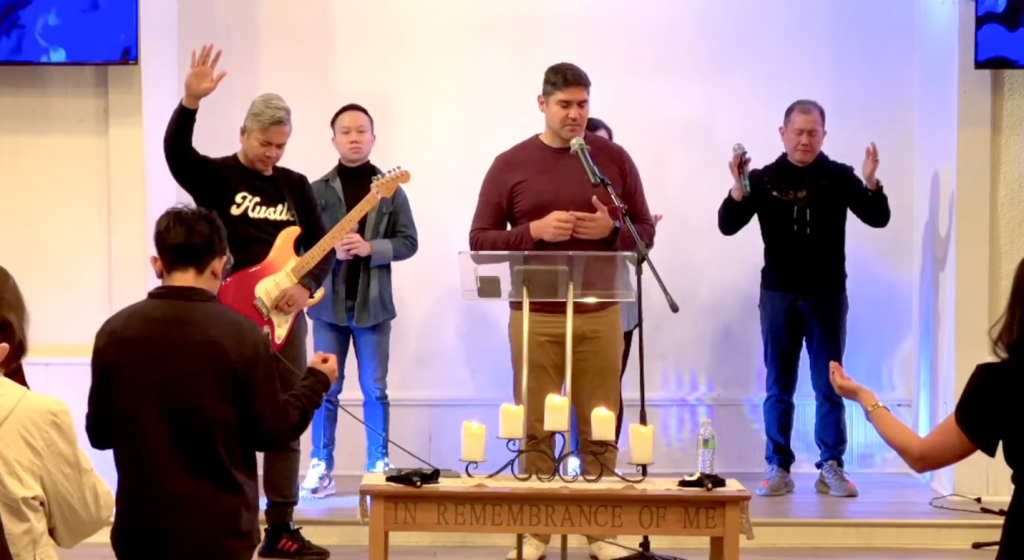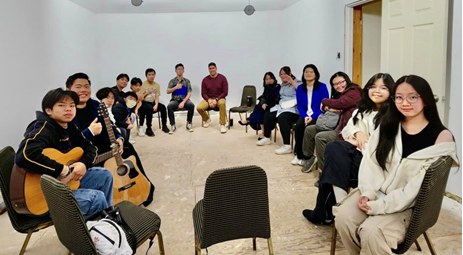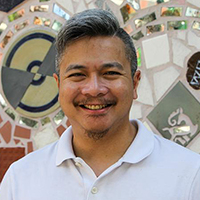by Sandra Montes-Martinez, Western District Associate Conference Minister
Editor’s Note: This reflection was first published on sister Conference Western District’s website and has been reprinted with permission.
The day I accompanied a friend to an ICE check-in appointment, fear was thick in the air. There was silence where there is usually conversation. Tension replaced the joy that often fills gatherings. The family moved slowly, every step toward the building weighed down by questions no one could answer. What would happen today? Would they walk out together?
I went to support my friend, but I carried my own fears too. Even with legal status, I did not feel safe. The unfamiliarity of the process, the guarded government building, and the sense that anything could change in an instant left me anxious. I knew I was there to offer strength, but I also knew that my presence was not immune to the heaviness of the moment.
We stood together because that’s what love does. That’s what community means. We pray together, we wait together, and when fear tries to isolate us, we choose solidarity. There was no guarantee of the outcome—only the assurance that no one would walk alone.
As we waited, I found myself returning to the teachings of Jesus, especially his words in Matthew 25:
“I was a stranger and you welcomed me… I was in prison and you visited me.”
Jesus does not call his disciples to comfort or convenience. He calls us to proximity, to courage, and to compassion that moves us beyond the boundaries of our safety and into the reality of others’ suffering. This moment at ICE was not a distant political issue—it was a lived, human experience of fear, dignity, and faith.
Our faith has long emphasized radical discipleship. At its core is the belief that following Jesus is not merely about believing in him—it’s about embodying his love in the world. Those before us understood this as they resisted the establishment, rejected violence, and stood with the persecuted even when it cost them everything.
In today’s world, we are again called to witness—especially in the face of immigration systems and the war that dehumanizes and traumatizes. We cannot be neutral in systems that oppress. Accompaniment is not only an act of friendship; it is an act of faith. It is how we say: You are not invisible. You are not alone. God sees you, and so do we.
As Anabaptist churches and leaders, this is the moment to embody the Gospel in concrete ways. Not with grand gestures, but with presence. With hospitality. With advocacy. With courage.
What Can the Church Do?
- Show Up: Accompany people to immigration appointments or court hearings. Your presence is powerful.
- Educate the Congregation: Offer forums or workshops on immigrant rights and how to support families navigating the system.
- Preach the Gospel of Hospitality: Remind your church regularly that Jesus calls us to welcome the stranger—not just in words, but in action.
- Support Local Immigrant Ministries: Collaborate with organizations and ministries that serve immigrant communities. Share resources and listen to what they need.
- Pray—and Act: Prayer is vital, but it must move us to action. Let your church’s prayers be the fuel that leads to tangible support and sustained presence.
The story of Jesus is the story of God drawing near to humanity in our fear and vulnerability. To follow him is to do the same. When we accompany others in their most uncertain moments, we are not just helping them—we are being transformed ourselves.
In a world that tries to separate, detain, and deport, we bear witness to a greater truth: that perfect love casts out fear. And that love, when lived faithfully, may just be the most powerful form of resistance.
Mosaic values two-way communication and encourages our constituents to respond with feedback, questions, or encouragement. To share your thoughts or send a message to the author(s), contact us at communication@mosaicmennonites.org.

